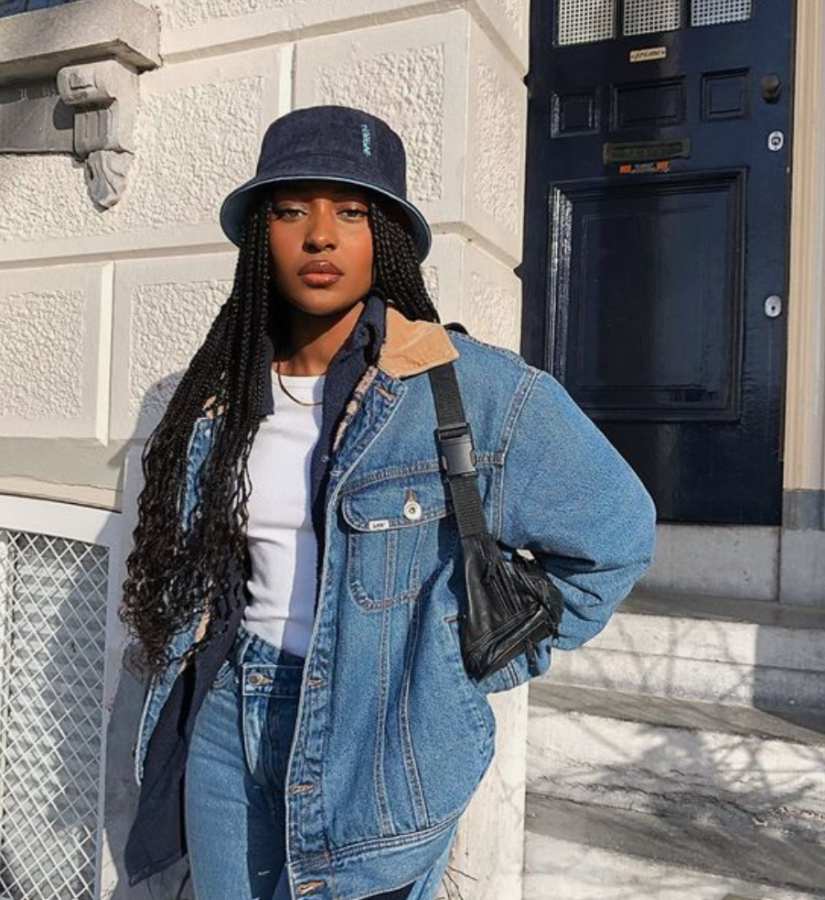Where it all started: How Black communities influence fashion trends
Some current fashion trends, like bucket hats and shoulder bags, were popularized by Black women years ago but are now coming back as a mainstream fashion trend.
February 2, 2021
Fashion trends come and go, but quite often, individuals will take up fashion trends without a second thought as to where it has come from. For some, clothing may simply just be a means of expression, but for many cultures, there is a deep-rooted history behind why and what they choose to wear.
“Fashion, especially within Black culture, has such a deep history and meaning,” said Bria Felix, junior in apparel, merchandising and design. “I really wish that people would educate themselves to know why we have worn the things we have in the past. It’s such an in-depth thing that I wish people would understand more.”
While many may not even realize, a large amount of the trends that circulate around the world of fashion began within the Black community.
From tracksuits to bucket hats and even bodycon dresses, many of the items that are considered heavily “stylish” now were not always thought of in the same light. Oftentimes, trends that begin within the Black community cycle to mainstream fashion after they have lost association with Black culture.
“Growing up as a Black woman and starting off as a young girl, a lot of the things that we did to our hair like beads and barrettes were made fun of, and it was something that we were made to feel bad for,” said Laquetta Buchanan, senior in apparel, merchandising and design. “It was something we had to work to accept about ourselves, and it’s sad because a lot of times, that same thing will be praised once it is adopted into white culture.”
For many Black individuals, watching fashion trends come onto the scene can be incredibly frustrating not only because their community was often the one to wear an item first but also because many Black designers are not at all as widely praised or recognized as their white counterparts when it comes to designing the items.
It can also be difficult for many to watch something that was once mocked when it was used by one culture become “all the rage” when it is taken up by mainstream culture.
“I honestly think a lot of the time the difference between how the trends are viewed is just because of how it’s associated with Black people,” Felix said. “As soon as we basically become erased from those trends, it’s cool and becomes the new thing, but when it’s popular in the Black community, it becomes ghetto or weird.”
Though the popularity of trends coming up from Black culture may at a glance seem to be nothing but positive for the community, there are also difficulties that can come from having your original ideas be taken and used in ways you did not intend.
“It’s complicated because on one hand, the popularity definitely does sometimes bring more awareness to Black designers and their brands,” Buchanan said. “But then there are also so many white designers that create the same product and those are more popular, which takes away money from the Black designer.”
While the idea of cultural appropriation is often a difficult topic for many, when it comes to clothing, most individuals just want everyday people to have a slightly better understanding of where their clothing comes from.
“It gets harder with clothing because you can’t necessarily say a culture owns a clothing, even if they made it popular,” Felix said. “How I personally feel about it is that I don’t think it’s appropriation, but it just frustrates me that so many people did not appreciate the trends when we were wearing them but then changed their mind as soon as they moved cultures.”
For most, more understanding and research is what is wanted from many of the communities who so often have their trends used with no context or homage given back to them.
“I really just wish that people would more so understand that when the Black community talks about fashion, it’s such an important aspect of who we are,” Felix said. “I think that’s why research and asking questions is so important because it is such a prominent part of who we are.”







